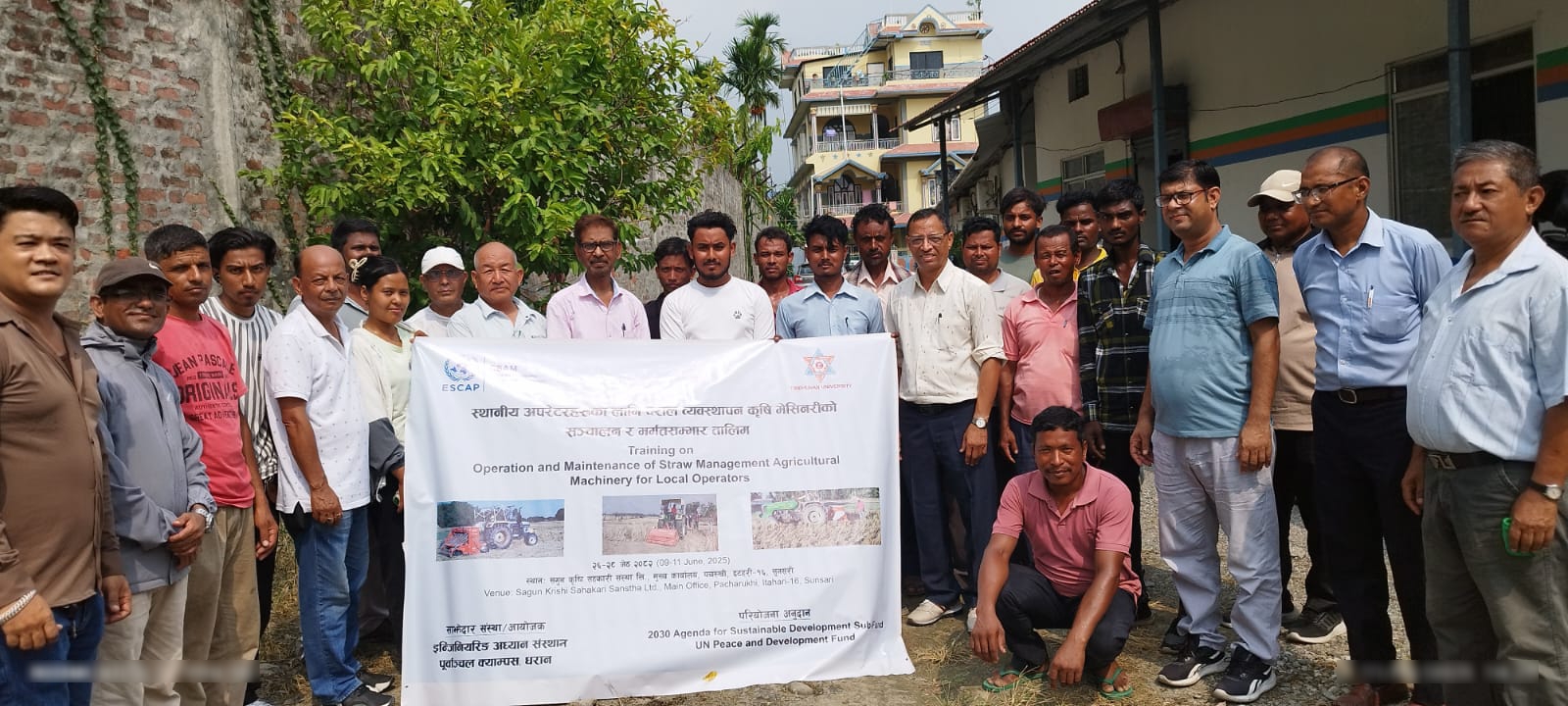Training on Operation and Maintenance of Straw Management Agricultural Machinery for Local Operators in Nepal

The training on Operation and Maintenance of Straw Management Agricultural Machinery for local operators in Nepal took place in the head office of Sagun Agriculture Cooperative Society Limited (SACSL) from 9 to 11 June 2025. The 3 days training was attended by 17 participants from the custom hiring center of SACSL, Krishna Dana Udhyog (KDU), Department of Agricultural Engineering (DoAE), Regional Agriculture Research Center (RARC), Harinagar Gaon Palika, Jeevan Bikas, custom hiring center of the Prime Minister Agriculture Modernization Project (PM-AMP) as well as farmers and tractor operators from the municipalities of Jhapa, Morang and Sunsari. The training was held as part of the activities of the project on “Strengthening Mechanization-Based Solutions for Climate-Smart Crop Residue Management in Cambodia, Indonesia, and Nepal” and is part of the regional initiative on integrated straw management of the Centre for Sustainable Agricultural Mechanization (CSAM).

The opening session was chaired by Mr. Jawed Alam, Associate Professor & Principal Investigator at the Institute of Engineering, Tribhuvan University and hosted by Mr. Yam Kumar Rai, Training Coordinator and Facilitator from the Institute of Engineering, Tribhuvan University. The welcome address was given by Mr. Tika Dutta Ban, Founder and President of SACSL who expressed his appreciation to be the part of this regional initiative in reducing open burning of straw residue. Mr. Kamal Kanta Rai from SACSL expressed his expectations that the training will be beneficial for operators to operate new machines for straw management. Mr. Madhusudan S. Basnyat, National Consultant for the project highlighted the training needs, objectives and expected outcomes from the sessions. The training was conducted by Mr. Md. Shamshad Ansari from RARC and Mr. Ranjan Kumar from Landforce India. A participant pointed out that the open burning of straw residue is observing an increasing trend since the intervention of combine harvester. Hence, programs not only need to teach operators to run machines, but also to run awareness campaigns for the consequences of open burning and conduct demonstrations of climate-smart technologies.

The training includes theoretical sessions to introduce different machineries such as the super seeder attached inclined plate multi-crop hopper, zero till seed cum fertilizer drill, straw mulcher and baler. Basic instructions on tractor components and driving techniques were also presented. Practical sessions were also provided on the assembly of the inclined plate multi-crop hopper. More practical emphasis was given for the calibration of super seeder, zero till seed cum fertilizer drill and drum seeder for paddy seeds. Participants also had the opportunity to operate the machines at the pilot site in Sunsari district. The demonstration plot had slight undulations, hence the land was leveled through shallow ploughing by rotavator. Participants were trained on how to operate the calibrated super seeder, zero till seed cum fertilizer drill and drum seeder with recommended dose of seed and fertilizer. The training also emphasized the safety and importance of periodical maintenance of these straw management machineries.

Participants expressed that the training program was effective, and they were able to learn to operate straw management machinery. However, access to machines is an issue since the cost of machines is relatively high for individual farmers. It was highlighted that the participants of this training can act as ambassadors to advocate for the reduction of open burning of straw residue in their communities.

